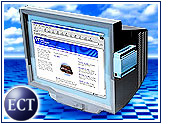
Digital video recorders that allow consumers to skip commercials in television programs they record might be more difficult to find in the future due to the “chilling effect” of a court case ended by a federal judge last Friday.
Judge Florence-Marie Cooper dismissed a lawsuit filed against 28 entertainment companies by five owners of a ReplayTV DVR that lets the owners automatically skip commercials from TV programming and easily share recorded programming with others. The federal district court judge nixed the suit after the entertainment companies agreed not to sue the owners for copyright infringement for using those features.
The lawsuit was filed in June 2002 on behalf of the owners by the Electronic Frontier Foundation (EFF), a civil liberties group based in San Francisco, following litigation in October 2001 by the entertainment companies against the original maker of the , there will be no ability to access the technology,” EFF attorney Gwen Hinze told TechNewsWorld. “No technology company, we believe, is going to feel comfortable offering those features if they’re going to be subject to the same fate as ReplayTV.”
“From one point of view, we’ve had a minor victory in that these companies aren’t going to sue any of us,” Craigslist.com founder Craig Newmark, a plaintiff in the case, told TechNewsWorld. “But I think the court took the easy way out and didn’t rule on some of the consumer rights issues involved in the case.”
Chill Already Felt
Signs of a chilling effect already can be seen in the market. Sonicblue, which some contend was forced into bankruptcy by the copyright infringement lawsuit filed by the entertainment companies — including MGM, Fox, Universal, Viacom, Time Warner and Disney — sold its Replay technology to Digital Networks of North America.
That company has continued to produce DVRs under the Replay name, but it has removed from those units features found repugnant by the entertainment industry.
Digital Networks spokesperson John Muscari told TechNewsWorld that the company is not commenting on any of the litigation involving the former owners of Replay or on why it removed the “commercial advance” and “send show” features from the new generation of units.
Neither Confirms nor Denies
Asked if the entertainment companies had any influence over Digital Networks’ decision to scrap those features, Robert M. Schwartz, a partner with O’Melveny & Myers, a Los Angeles law firm that represented Time Warner and others in the Replay Five case, told TechNewsWorld: “I can’t answer that question without divulging discussions that were had between parties on a confidential basis. I don’t want to be confirming or denying that or for anyone to read into what I’m saying to be a confirmation or denial.”
“There’s no agreement of any kind between any of the plaintiffs and the current owner and manufacturer of the Replay box,” he added. “They bought the assets from the bankruptcy court. They looked at the commercial landscape. And they made their decision on what features they were going to stop including in the boxes on their own.”
Attacks TV Underpinnings
In their original complaint against Sonicblue, the entertainment companies claimed the commercial advance feature of ReplayTV “attacks the fundamental economic underpinnings of free television and basic nonbroadcast services.”
“Advertisers will not pay to have their advertisements placed within television programming delivered to viewers when the advertisements will be invisible to those viewers,” the companies reasoned. “In effect, by eliminating the embedded advertising, defendants’ copying-and-commercial-deletion feature will (as to those viewers who employ the feature) eliminate the source of payment to the copyright owner for the very program being viewed.”
As a result, the companies argued, the defendants’ scheme impairs the value of the works and “reduces the incentive for their creation and dissemination.”
End of Lawsuits?
Although the Replay Five might be off the lawsuit hook, some 4,995 other ReplayTV owners are not. There’s nothing in the ruling that would stop the entertainment companies from suing any of the remaining owners of original ReplayTV units, Hinze said.
“While that’s technically correct,” Schwartz observed, “let me underscore that no one has suggested that anyone would file a lawsuit against them.”





















































